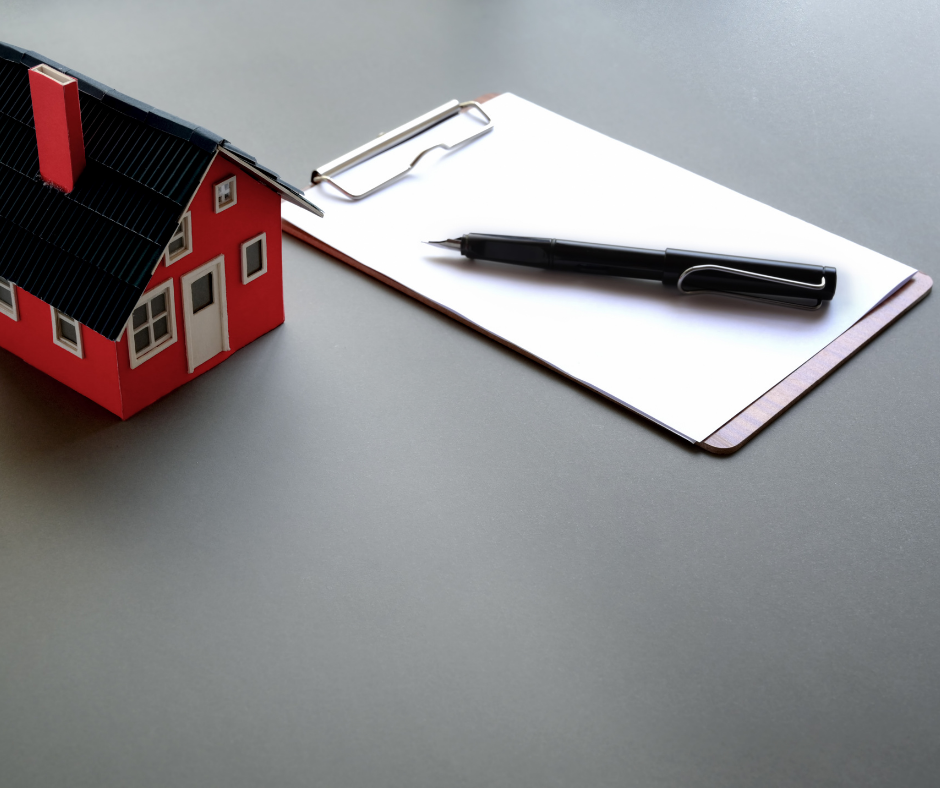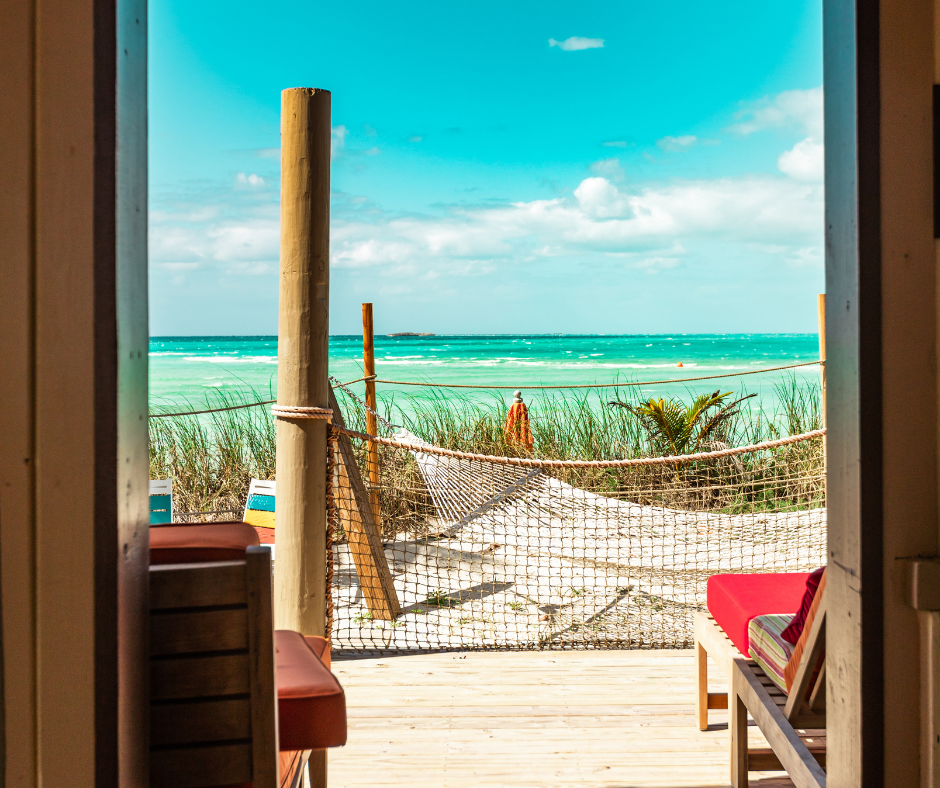Roberts Insurance Group Blog |
|
At the Roberts Insurance Group, we insure hundreds of homes all over the state of Georgia. While serving so many homeowners throughout the state, we've been asked all kinds of questions as it pertains to home insurance. One common question is: Will home insurance pay to remove a tree from my property that could fall and cause more damage? To many homeowners' surprise, the answer to this question is NO. This is true with every home insurance company. But why? Many homeowners often argue that, if the tree does not get removed it will end up causing more damage that the insurance company will have to pay for. The answer that insurance companies have for this is: because there has been no loss. In order for home insurance coverage to apply, there has to be a loss. Something has to happen. An easy rule of thumb to know whether or not something would be covered is "sudden and accidental" loss. Has there been a loss? Was the loss or cause of loss sudden and accidental? If the answers to these questions are "yes" and "yes", then there's definitely potential for coverage (note that this "rule of thumb" is not exact and will not definitively determine whether or not there is coverage for a loss under your homeowners policy). So, for the example given, the tree would actually have to fall and damage something in order for coverage to apply. If a tree suddenly and accidentally falls and damages something, your homeowners policy should provide coverage for the damage to your property (subject to a deductible) and there would also be coverage to remove the fallen tree from your property. What Options Do Homeowners Have For A Tree That Needs To Be Removed? The only real option for Georgia homeowners would be to pay to have the tree removed out of pocket. Tree removal (before a loss) falls into the category of homeowner maintenance similar to old roofs or old and worn out siding. If your roof is old and needs to be replaced but there's not storm damage, the insurance company will not pay to replace it. Again, there has to be a sudden and accidental cause of loss, like a storm or weather event, in order to coverage to apply. Here at the Roberts Insurance Group, we help homeowners throughout Georgia protect their homes and properties and would love the opportunity to help you too! Give us a call at 678-250-8133 or click below to see how we can help.
0 Comments
A question we hear pretty frequently is: what is the difference between collision and comprehensive coverage for car insurance? For those that do not work in property and casualty insurance, this is a very common question.
These days, when someone says they have "full coverage", what they really mean is that they carry comprehensive and collision coverage. These are the two coverages that a lienholder will require you to carry on your auto insurance if your car is financed or leased. These coverages will pay to fix or replace the vehicle if the damage is not due to another driver. So What Does Each One Cover? Comprehensive Comprehensive coverage on your Georgia car insurance policy will pay to fix or replace your vehicle if it the damage is not caused by you or another driver. So what things does it cover? It will cover things like: glass damage, storm damage, damage from something falling (like if a tree fell on your car), and it will replace your car if it is stolen. One of the less common comprehensive claims is when you put the wrong type of gas in your vehicle. We had a claim one time where a client put regular gas in a diesel truck. It ended up costing several thousand dollars to get this fixed. Aside from covered claims, one of the big differences between collision and comprhensive coverage is with deductible options and cost of insurance. Most insurance companies will allow you to carry a comprehensive deductible as low as $0 whereas the minimum for collision is usually $250. In addition, compohrnesive coverage is always far less expensive compared to collision coverage, so lowering the deductible for this coverage is going to be much less expensive. Collision Collision coverage on your Georgia auto insurance policy pays to fix or replace your car if you are at-fault for the damage. Whether you cause an accident on the roadway, hydroplane in a ditch, or back into a pole, your collision coverage will be used to fix or replace your vehicle. As discussed above, collision coverage is far more expensive than comprehensive coverage, which leads most clients to choosing a higher deductible, usually $500 or $1,000. How We Help Clients Get The Best Auto Insurance In Georgia At the Roberts Insurance Group, we work with our clients to help build a coverage plan that works best for them and their family, so that their auto insurance works exactly how they want it to when it comes time to file a claim. This includes advising on whether or not to carry comprehensive and collision coverage and what deductibles to choose. We will shop around your ideal coverage with dozens of the best insurance companies in Georgia to find the very best price for the coverage you need on your car insurance. Give us a call at 678-250-8133 or click below to get your cars properly insured and to start saving money today! The Roberts Insurance Group is a Georgia Insurance Broker specializing in commercial and personal insurance for our clients throughout the state of Georgia. We help our clients lower their cost of insurance with our superior claim and risk management expertise and our extensive carrier access. We are in the business of building relationships with our clients to help them grow and succeed. Contact us today to see what we can do for your family or business. Four Things Your Company Can Do To Make Your Next Worker's Compensation Audit A Breeze
If you've been in business for any period of time, you're probably familiar with the audit that comes at the end of your Worker's Comp policy term. Trust me, the only thing a business owner hates worse than paying for insurance is completing the audit. The main issues companies have with worker's compensation audits is that they require some paperwork and there is always the chance the insurance company will come back after the audit and bill your business for additional premium. Lucky for you, we're very experienced in helping our clients navigate their audits seamlessly and have put together some tips and tricks to implement when it's time for your next audit. If you follow our 4 tips below, you're next worker's compensation audit will be a breeze: 941 Payroll Taxes It is very common for auditors to ask for copies of your business' quarterly payroll taxes. They do this to verify that the payroll on your payroll reports matches what was paid to the employees. Before your next audit, be sure to go ahead and pull your company's payroll tax quarterly reports and have them ready to go. Subcontractors Certificates of Insurance Any time your company hires someone to do work for your business, you need to make sure they are insured and to collect certificates of insurance for their business. When it comes time for your audit, the auditor is going to ask for copies of these. If you're unable to provide them, then your insurance company is going to charge you for the work they've done for your company. Make sure to collect these as the work is being done and have them easily accessible prior to your next audit. Job Category Classification Workers compensation premiums are based on payroll paid for specific occupations. For instance, the premium for $100,000 paid to an office workers will be significantly less than the premium for $100,000 paid to a construction worker. When you are classifying your employees, it is important to make sure you classify them based on their category and not their specific job duty. Listing Executives It is important that your auditor knows who the company's executives are because there is a cap on the payroll that an executive has to pay for their workers comp premium. If this goes unchecked, there is a very good chance that you business will end up overpaying for the workers comp premium on their executives' payroll. Following these 4 tips are some of the keys to making sure your next audit runs smoothly. Even if there ends up being additional premium after your audit, there is no need to worry because your agent or broker should be able to negotiate to reduce the balance due for you and your business. If you would like to discuss any current or past audits for your company, we would love to help over at The Roberts Insurance Group. We've helped companies throughout the state of Georgia navigate current and past audits to help get their premiums adjusted and back on the right track. You can schedule a time by calling 678-250-8133 or clicking the link below. Roofing has become a very popular and lucrative profession for many contractors. Roofing companies are one of the many contractors we insure at the Roberts Insurance Group. Roofers present a unique risk to insurance companies and can be a little tougher to insure than most artisan contractors.
Through our experience and expertise in working with roofers, we have highlighted 3 things that Roofers and Roofing Companies need to address when structuring their insurance program: Subcontractors Using subcontractors is very common in the construction industry. For one reason or another, roofing companies tend to rely on subcontractors more than most types of artisan contractors. When hiring subcontractors, there are steps roofing companies can take to help protect themselves and their business: Written Contracts It's important to have a written contract in place when hiring subcontractors. One of the items to include in your contract is in regards to insurance requirements. Your contract should state that the subcontractor needs to carry Commercial General Liability (CGL), Commercial Auto, Workers Compensation, and Commercial Umbrella coverage with limits equal to or greater than the limits on your policies. It is also important to state in the contract that the subcontractors are not allowed to use non-standard policies or policies with specific exclusions you identify as being necessary. Another item to address in your contract is that the subcontractor is required to provide certificates of insurance for their policies to you before work is started. In addition, you should make sure that your subcontractors are naming your company as an additional insured on all of their policies and that this is outlined on the certificates of insurance. Open Roof Exclusions Open roof exclusions are common with non-standard commercial general liability policies for roofers, which is why it is important to make sure your policy does not have the open roof exclusion. This exclusion essentially states that there is no coverage for property damage or bodily injury while the roof is "open" and under construction. When setting up your company's insurance plan or reviewing a subcontractor's, make sure there is not an open roof exclusion. Audit Premium Having your policy rated properly when setting up your insurance program will prevent your company from having a major unexpected expense at the end of the year. Rating factors for general liability and workers compensation are based on projected revenue and payroll. For instance, if you estimate your total sales to be $100,000, your policy will be billed at the "estimated" premium based on $100,000 in sales. At the end of your policy period, your sales will be audited. After the audit, if sales end up being much higher, let's say $500,000, then your company will be responsible for a rather large additional premium. From our experience, it makes much more sense to have the policy rated correctly (or over-stated) on the front-end when the policy or program is getting set up. This prevents an unexpected bill for thousands of dollars at the end of the year. Predictable premiums and pricing is something you will receive from the Roberts Insurance Group. How Can You Make Sure Your Roofing Business Is Protected And You're Getting The Best Value? Give us a call at 678-250-8133 or click below and one of our licensed advisors will help tailor a plan for your company that properly protects your business from the unexpected and gives you reliable and predictable pricing. We work with roofers and roofing companies throughout the state of Georgia and have the knowledge and insight to help grow and protect your business. Important Rules Landlords And Real Estate Investors Should Use To Maximize Profits And Value7/15/2021 Real estate investing can be very lucrative. It is one of the few investment opportunities that can be financed by a bank or lender. It also creates a passive stream of income and an asset that (historically) appreciates in value over time. However, there are certain things to look out for as an investor when purchasing and managing a property. We work with real estate investors and landlords throughout the state of Georgia. Here are some of the things that the most successful investors do to make sure their properties maximize their value and profit and are well-protected: Thoroughly Inspect The Property Before Purchase This may seem like a no-brainer, but it is often overlooked and not done thoroughly. We recommend hiring a trusted third-party inspector to thoroughly inspect the property before purchase. This will help you make a solid decision on whether to purchase or not as well as negotiating the purchase price. Is everything up to current code? Has the roof, electrical, plumbing, and HVAC been updated in the last 10 years? Is there any mold? All of these are important questions that home inspectors can tell you before you buy. Depending on the answers to those questions, you may decide it's best not to purchase. Or you may use that to negotiate the price down, knowing that it is something you will have to address after you purchase. Either way, a thorough home inspection is KEY to making sure you're making a good investment. Written Contracts With Tenants Having a written contract (lease) in place with your tenants is crucial to protecting your investment and your business. We recommend hiring an attorney to draw one up and tailor it to exactly how you, the investor, want it. Doing so does present a small up-front cost but will protect you in the event you have a disgruntled tenant in the future, which can lead to lawsuits and claims. Lawsuits and claims, at the very least, will increase the cost of your insurance, which cuts into your profit. At worst, it can ruin you financially. Screen Your Tenants Screening your tenants is a great way to ensure your property remains in good condition and that the value continues to appreciate over time. Requiring your tenants to carry Renters Insurance (HO4) not only protects your tenants belongings, but it pays for a place to them to stay if there's an issue that causes them to have to move out. Additionally, it provides a way for you, the landlord, to pass liability exposure back to their insurance policy (and not yours). Performing background, eviction, and credit checks is another great way to ensure you get a tenant who will pay on time and take care of your property, all of which is vital to maintaining a profitable property. If you don't get paid and have to go through the eviction process, you'll be out of pocket several thousand dollars just for the loss of income. Not to mention any damage they may leave behind that you're forced to repair. Property Insurance Insuring your rental or investment property is vital to protecting your investment. Damage that is uninsured could cost you more than your original investment, which is why it is so important to have the right type of policy in place. For traditional long-term rental properties, you need to have a Dwelling Fire Policy (DP1, DP2, or DP3) in place. This is also called a Landlord policy by some carriers. The landlord policy is rated for tenant exposure and also includes coverage for loss of rent or income. If your rental property is written as a homeowners policy or as a secondary home or as a vacation home, chances are any claim you file will be denied and there will be no coverage. If there is damage, you would have to pay for everything out of your own pocket, which is why its important that your policy is written properly. Keep Tabs On Your Property When you purchase an asset that is worth hundred of thousands of dollars and someone else is living in it, it's important to make sure it is being maintained over time. Seasoned investors make a point to drive by their property every few months to make sure the property is being maintained. If you are unable to do this due to the size of your portfolio or due to your location, you may need to hire someone like a property manager to do this. How Can We Help? At the Roberts Insurance Group, real estate investors is one of the top classes of business we write. We insure hundreds of portfolios throughout Georgia and have the knowledge and carrier access to ensure your investments are properly insured. In addition, we have a network of real estate professionals that can be a resource for you and your investment properties. Give us a call at 678-250-8133 or click below and one of our licensed agents will help guide you through the process of properly insuring your portfolio and maximizing your profit. Your teenager just got licensed and you just helped them get their first car. Exciting, right? It is for most parents until they call to add their newly licensed child and their new car to their auto policy. Many parents get caught off-guard by how much it costs to insured teenage drivers nowadays. Luckily, we're going over things you can do to make sure you get the best value when you insure your new driver. Work With An Independent Insurance Agent Instead of spending hours and hours calling around and searching the web for the best overall value, you can make one quick call to an independent insurance agent and have them compare quotes across dozens of different companies. Independent insurance agencies, like the Roberts Insurance Group, partner with several different A-rated companies to be able to find the very best value for each individual client or household on their auto insurance. Make Sure Your Kids Have Good Grades The "Good Student" discount is one of the best discounts available for teenage drivers. Typically, this means that your teenage driver needs to maintain a 3.0+ GPA. Doing this can save you up to 20% on your teenager's auto insurance rate. Make Sure Your Kids Take A Driver Training Course Prior To Becoming Licensed The driver training discount is another great discount for parents and their teenage drivers to take advantage of. Not only does it better prepare your teenage driver, it gives you an instant premium savings. Teenage drivers that take a driver training course prior to becoming licensed are 50% less likely to cause an accident, which is where the real savings comes in! If you think their premium is high now, wait until they have an at-fault accident. Take Advantage Of A Telematics Discount (and all other possible discounts) Telematics discounts are one of the newest types of discounts to make its way through the insurance industry. This is a discount you can receive from downloading an app on your smartphone or plugging in a device to the car's computer sensor. The app or device will track your teenager's mileage and driving habits. Typically, the program will give you an introductory discount to start with, something like 5 or 10%. Based on their mileage and driving, the discount can go to as high as 40%. Ready To Get The Best Value For Your Teenage Driver? If you're ready to go ahead and get a better value insuring your teenage driver, go ahead and give us a quick call at the Roberts Insurance Group. We're a local independent agency and we have access to dozens of different insurance companies to ensure our clients get the best value when insuring their teenage drivers. Call us at 678-250-8133 to speak with one of our licensed insurance agents or click below and we'll get started for you and your family today! Shopping around for insurance is a pain. It is very time consuming. It can be very confusing. It can also lead you to end up making a purchase you'll regret when you need to file a claim. Think about it. Let's say you want to get quotes from 7 different companies. Whether you do it online or over the phone, you're probably going to spend close to 30 minutes on each quote. Then, once you get the quotes back, you have spend time comparing the quotes. When you're comparing quotes, each home and auto insurance quote may have some subtle differences on the proposal that you have to take into account. There may also be some significant differences in coverage "below the surface" that aren't explicitly stated on the quote(s); things that the agent or carrier may be aware of but you, the consumer, are not. And the worse part is, you don't even know to ask! So now you've spent close to 4 hours gathering and comparing quotes and now you have to make a decision on something where you're not even 100% sure what you're getting. So what can you do? Work With A Trusted Independent Insurance Agent By working with an independent insurance agent, you can save time and money when shopping for your home and auto insurance. Options If you work with a captive insurance agent, like State Farm, Geico, USAA, Farmers, etc., you're only able to get a quote from 1 company. When you decide to work with an independent insurance agent, you're able to get quotes from dozens and dozens of companies, all through the same agent or agency. Independent insurance agencies, like the Roberts Insurance Group, have partnerships with several different insurance companies and are able to shop around for you to guarantee you get the very best value. Here at the Roberts Insurance Group, we have about 40 different companies that we work with directly and have access to many more on secondary markets, if needed. Instead of spending hours calling around to different insurance companies, you can spend 15 or 20 minutes with us and have us compare quotes for you between dozens of different companies. Advisors vs. Salesperson Independent insurance agents function more as an advisor to clients rather than a salesperson. Since independent insurance agents have so many different companies and options for their clients, there is never a need to try and push a client towards any one specific company or product. For instance, here at the Roberts Insurance Group, we like to present the option with the best overall value and act as an advisor to our clients. Since we have several options available for clients, there is never a need to cut coverage or use high-pressure sales tactics just to get a deal done. Give Us A Call To Compare Coverage And Rates Across Different Companies And Get A Better Value Here at the Roberts Insurance Group, we would love the opportunity to help you navigate the marketplace when you're ready to get a better value on your insurance. Our team of licensed professionals will shop your insurance between dozens of companies and make sure you're getting the very best value on your home and auto insurance. Click below or give us a call at 678-250-8133 to get a better value today! When it comes to insurance, there are a few different things to consider that differ from insuring a primary home. Why is that? Because the risks are going to be slightly different. Depending on how your vacation home is used, there are going to be some risks associated with it that are not relevant for your primary home. Personal Use Only- Extended Vacancy If you have a second home that is solely used by you and your family, chances are it is vacant a majority of the time. With the increased vacancy, there is an increased risk for burglary, vandalism, and unnoticed damage. For instance, if there is a water leak from an appliance or plumbing fixture, it could be several weeks before you notice it. Whereas, you would probably notice it right away with your primary home. Insurance companies take this increased risk into consideration when determining your policy premium. Intentions Of Renting Many Georgians with vacation homes will often make them available for short term rental, like on Air BnB or VRBO, when they are not staying there. This helps create an additional income stream and/or a way for the home to "pay for itself". If you're doing this with you vacation home, you'll need to have your policy set up slightly different. For instance, it would be a good idea to have coverage to cover your lost income or lost rents in the event of a loss. If there's damage to the home that makes it unavailable to rent-out until repairs are made, the loss of rent or income coverage will ensure that your additional income stream is not interrupted. In addition to loss of rent, Georgians who rent out their second home need to consider the added liability that comes with short term rentals. With so many people that are coming and going and are unfamiliar with the property, the likelihood of someone getting injured on the property is increased. This is a great reason to consider adding a liability umbrella policy. How Much Does It Cost To Insure A Vacation Home In Georgia? This depends on so many different factors including how the home is used, the location, the size of the home, the age of the home, the age of the roof, your claims history, whether you need flood insurance, and more. However, you should expect to pay slightly more than you do for your regular home for the same coverage limits. To make sure you're getting the very best value on the insurance for your vacation home, we recommend consulting with an independent insurance agent. An independent insurance agent will have access to dozens of different carriers to help you find the best value for your particular situation without trying to push you to buy one specific product from one specific company. Get A Quote Today Contact us today by calling 678-250-8133 or by clicking below to get a quote on your vacation or secondary home. Our licensed independent agents have insured vacation homes all over Georgia and have the knowledge and carrier access to get you the very best value for your property. The Roberts Insurance Group is a Georgia Insurance Broker specializing in commercial and personal insurance for our clients throughout the state of Georgia. We help our clients lower their cost of insurance with our superior claim and risk management expertise and our extensive carrier access. We are in the business of building relationships with our clients to help them grow and succeed. Contact us today to see what we can do for your family or business. Auto Insurance Liability Limits- How Much Coverage You Should Have On Your Auto Policy In Georgia7/8/2021 When it comes to auto insurance in Georgia, the liability coverage on your auto policy is by far the most important. Why? Because your auto liability protects you from financial ruin. It protects your assets or income from being garnished due to damages you're liable for from an auto accident. Example: If you carry the state minimum liability limits on your auto policy (which is $25,000 per person for bodily injury, $50,000 bodily injury in any one accident, and $25,000 for property damage), and you have an accident that causes $50,000 in bodily injury for another person and $60,000 in property damage, then your auto policy will only pay $50,000. Since you're liable for $110,000, you would be on the hook for the remaining balance. Do you have an extra $60,000 laying around waiting for a lawsuit? Or would you prefer your insurance company to pay for everything? I have never met anyone who didn't choose option number 2. Let's Think About This Some More How far does $25,000 go when you're in the hospital? These days, not very far at all. How much is an ambulance ride? What about a helicopter ride? $25,000 won't even brush the surface. With the rising cost of medical care, it's crucial for Georgia drivers to maintain sufficient liability limits on their auto policy. After all, if your policy limits get maxed out, you're still responsible for the remaining damages. Further, how many cars nowadays are worth more than $25,000? Just look around on your commute. Almost every new model vehicle is going to be in excess of $25,000. You never know when an accident will happen, which is why it is called an accident. You also have no control over someone else's injuries or what type of car they're driving, which is why it is so important to have adequate liability coverage on your car insurance policy in Georgia. So How Much Liability Coverage Should You Carry? Every individual or household will be different. Generally, we recommend carrying at least $100,000 in property damage at a care minimum and $100,000 of bodily injury coverage at a bare minimum. Of course, for many households, higher limits such as $300,000, $500,000 and an added liability umbrella policy should be considered. If you're concerned with the current level of liability coverage on your auto policy, give us a call at the Roberts Insurance Group at 678-250-8133. We can advise you on the liability limits you need so that you're adequately insured. The Roberts Insurance Group is a Georgia Insurance Broker specializing in commercial and personal insurance for our clients throughout the state of Georgia. We help our clients lower their cost of insurance with our superior claim and risk management expertise and our extensive carrier access. We are in the business of building relationships with our clients to help them grow and succeed. Contact us today to see what we can do for your family or business. We work with a lot of Georgia homeowners and insure many homes throughout the state. A question we receive pretty frequently is: Will my home insurance pay for a new roof? The answer to that questions is: Yes and no- it depends! What Determines Whether Homeowners Insurance Will Pay For A New Roof? The main thing to consider when it comes to roof coverage for Georgia homeowners is the cause of loss. What actually caused your roof to become damaged and in need of replacement? Most homes in Georgia are covered on an "all peril" basis. This means that the home is covered from all damage that is not specifically excluded. When it comes to roofs, a good rule of thumb is "sudden and accidental". Was the cause by something suddenly and accidentally? If the answer is yes, then your claim will most likely be covered. If the answer is no, then it probably won't be covered. One of the common issues we see when it comes to getting roof claims covered is the age of the roof. Many times, homeowners in Georgia will have an old roof and expect it to be replaced after a roofer told them it needs to be replaced. Yes, your roof may very well be in need of a replacement. However, your home insurance will only pay for it if the need for the replacement is caused by something sudden and accidental, like a windstorm, hail storm, or a tree falling on it. If your roof needs to be replaced due to wear and tear or old age, that is a homeowner maintenance issue and would not be covered by your home insurance, most likely. The Amount Of Damage To Your Roof Matters Another key factor in whether your home insurance will pay for a new roof is how much damage there is. Is there just a small section that is damaged? Is there just a few shingles missing but everything else is in good shape? Is there massive hail damage covering 70% of your roof? All of the questions are important and will determine how much your home insurance company will pay for a new roof. If the damage is minimal, it may not warrant an entire new roof, so in the instance the insurance company may cover the loss but only for a partial replacement. How To Know If You Need To File A Claim For A New Roof In Georgia As a Georgia homeowner, the main thing you can do to know whether or not you need to file a claim is to get assessments and estimates from multiple roofers or contractors and review your policy with your agent or broker. If you have multiple contractors saying that your roof is damaged from a recent storm and it will cost $10,000 to fix it, there's a good likelihood that what they are saying is true and that your home insurance would cover it. From there, review your coverage with your agent. Make sure to know what your deductible(s) are (including wind/hail deductible) and from there, you will know if you need to file a claim or not. Here at the Roberts Insurance Group in Canton, GA, we specialize in working with homeowners throughout Georgia. We help clients design a policy and coverage plan that works the way they want and need it to- including full replacement cost for roofs! Give us a call today at 678-250-8133 or click below to see how we can better-protect your home. The Roberts Insurance Group is a Georgia Insurance Broker specializing in commercial and personal insurance for our clients throughout the state of Georgia. We help our clients lower their cost of insurance with our superior claim and risk management expertise and our extensive carrier access. We are in the business of building relationships with our clients to help them grow and succeed. Contact us today to see what we can do for your family or business. |
Contact Us(678) 250-8133 Archives
February 2022
Categories |









 RSS Feed
RSS Feed